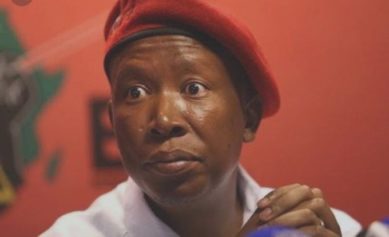In South Africa, where judges and courts have come to hold a special importance, a recently leaked document has brought into the open a debate about the racial makeup of the judiciary.
Since the advent of democracy in 1994, the African National Congress, the mostly-black anti-apartheid liberation movement, has enjoyed consistent electoral success and has come to dominate most aspects of national politics and the instruments of government.
As a result, the courts and judiciary have been left as the only branch not directly controlled by the party, and have come to be seen as an important and relatively colorblind path for groups and individuals seeking redress.
Yet the courts are also accused of sloth or delay in the collective South African effort known as “transformation” – a term of art for the shedding of apartheid and its inequalities.
A 2009 report, for instance, showed that 92 of 201 Superior Court judges were white in a country where less than 10 percent of the general population is.
Things came to a head on April 7, when an internal discussion document from a member of South Africa’s Judicial Services Commission (JSC), the body that interviews and appoints judges, leaked in local media.
“One way or the other, the JSC must deal with the uncomfortable perception that the graffiti on its wall reads ‘white men can’t judge,'” wrote lawyer Izak Smuts in his report, which immediately set off a small media storm.
Smuts said the commission must debate and then decide whether white males should cease to be considered for judicial appointments in the short term – in the interests of changing the overall racial makeup of the judiciary.
“The JSC should, at the very least, come clean and say so, so that white male candidates are not put through the charade of an interview before being rejected,” Smuts wrote.
The fallout of that leak touched off a robust media debate on the role of transformation in the judicial system, and the commission took a day of hearings to discuss its contents.
South African Constitutional Court Chief Justice Mogoeng Mogoeng, who also chairs the JSC, rejected the notion that white males were overlooked and noted that one such candidate had just been appointed to the Supreme Court of Appeals.
Most of the commission’s hearings on the document took place behind closed doors. But by the end of the week, Smuts had resigned from the JSC.
He said it had become “devastatingly” clear that his understanding of the JSC and South Africa’s constitution was “far removed” from the opinion of the majority of the commission.
Smuts cited several candidates, not all of whom were white, who were passed over for selection as judges. In an April 2011 case, for instance, the JSC chose to keep two positions on the high court vacant rather than appoint a candidate, despite having three qualified candidates.
The JSC gave no substantive reason for having turned down the applicants. Following a lawsuit, the South African Supreme Court of Appeal declared the lack of reasons to be “irrational.”
“During my time [the JSC commission] has left a trail of wasted forensic talent in its wake,” Smuts said.
Read more of this story: Yahoo


